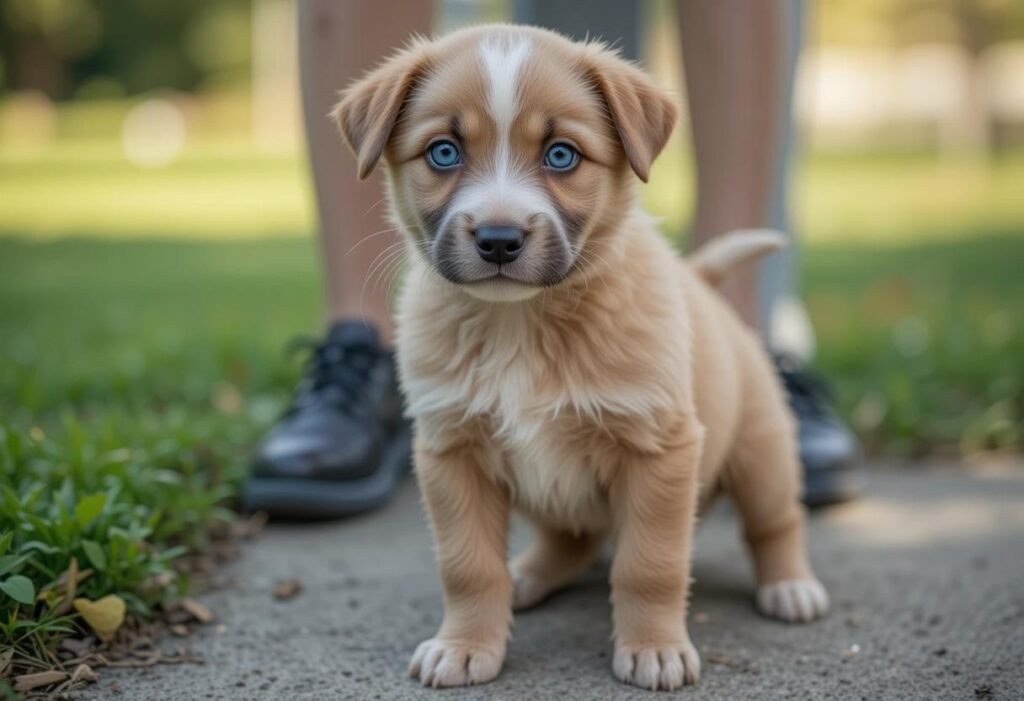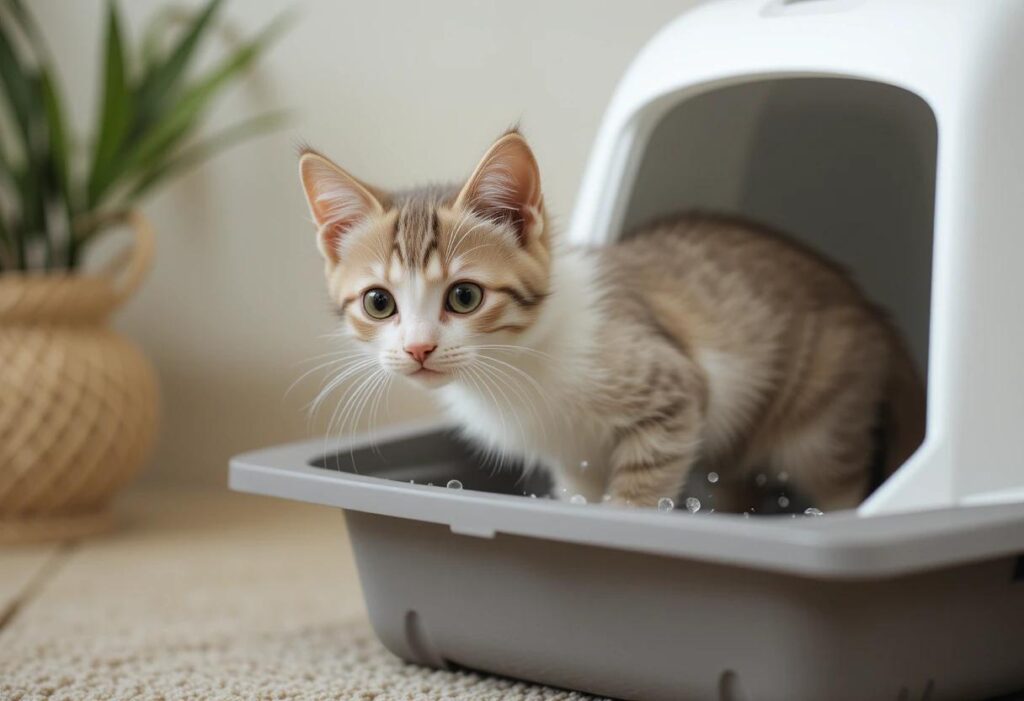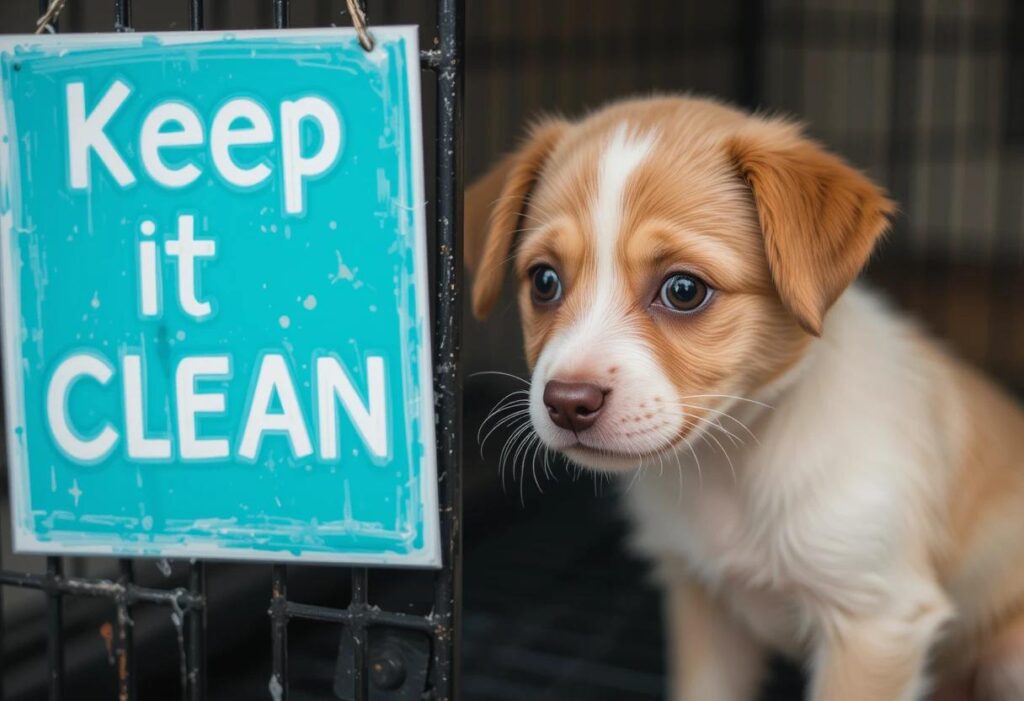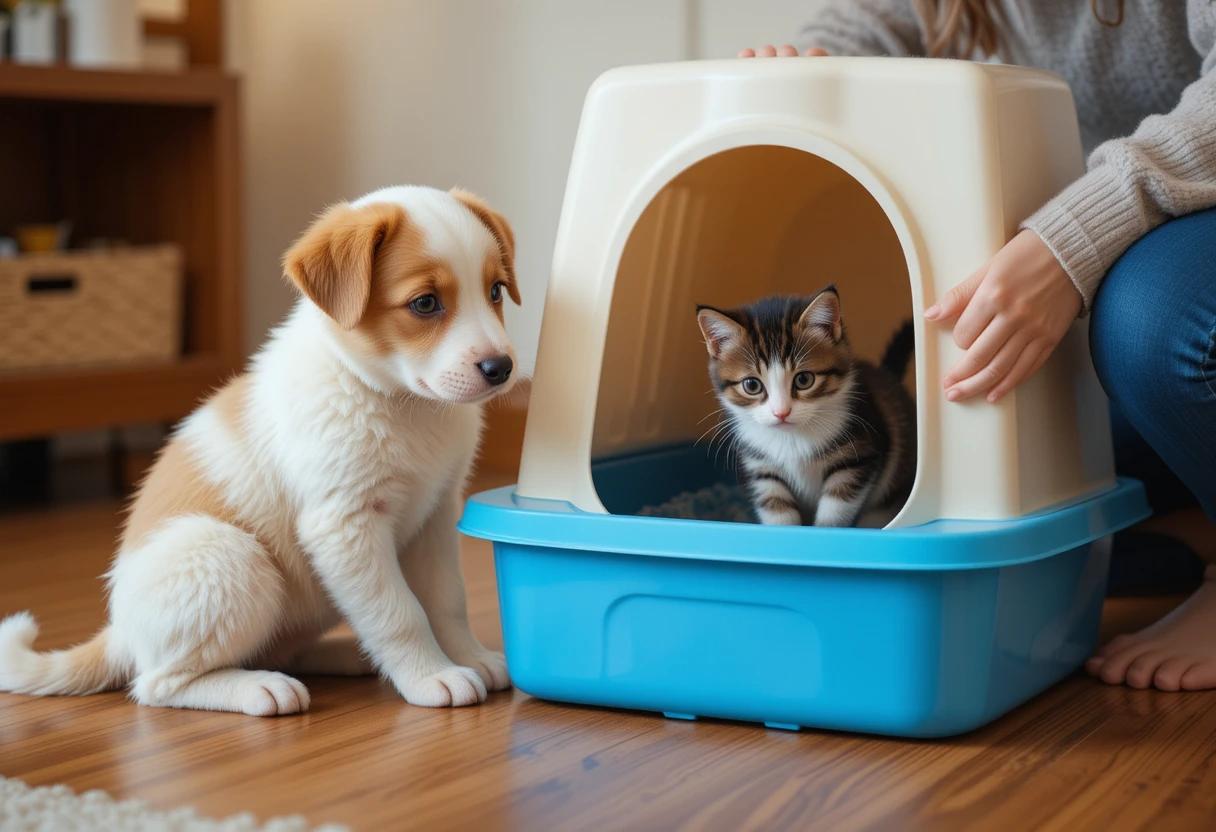House Training for Puppies and Kittens
Bringing a new puppy or kitten into your home is an exciting time, but with it comes the responsibility of house training. Whether you’re a first-time pet owner or experienced with furry friends, house training is an essential part of helping your new pet become a happy and well-behaved member of your family. This guide will provide you with practical, step-by-step tips for house training both puppies and kittens, ensuring that the process is as smooth and successful as possible.
Table of Contents
What is House Training?
House training is the process of teaching your pet where it’s acceptable to relieve themselves. For puppies, this usually means potty training outside, while kittens use a litter box. The goal is to help your new pet understand where they should go to the bathroom, making your home clean and your life a little less stressful.
While house training is a learning process that takes time, it is well worth the effort. House-trained pets are not only more pleasant to live with but are also healthier, as they are less likely to develop behavior issues related to improper bathroom habits.
House Training Puppies: Tips for Success
Puppies are eager to please and can be house trained quickly with the right approach. However, it’s important to be patient and consistent. Puppies need clear guidance and routine to learn how to use the bathroom in the right places.

Start Early
The earlier you begin house training, the easier it will be. Ideally, start house training your puppy as soon as you bring them home, around 8 weeks of age. Starting early allows your puppy to develop habits and routines from the get-go. Puppies can start to learn proper bathroom behavior right from the moment they enter your home, as they are impressionable at this age.
Set Up a Consistent Schedule
Puppies thrive on routine. Establish a regular schedule for feeding, bathroom breaks, and walks. Puppies have small bladders and may need to go outside as frequently as every 2-3 hours. Always take your puppy out after meals, naps, and playtime. This consistency will help them form a predictable pattern, making bathroom training easier for both you and your pet.
Consistency is key. Take your puppy to the same spot outside each time so they can associate that area with bathroom breaks. Dogs tend to develop a strong sense of scent, so using the same spot repeatedly will help them understand that this is the designated area for relieving themselves.
Positive Reinforcement Works Wonders
One of the best ways to encourage good behavior is through positive reinforcement. Every time your puppy relieves themselves outside, offer plenty of praise and a small treat. This positive feedback helps your puppy understand that going potty outside is the right thing to do. This approach builds their confidence and makes the learning process enjoyable.
Avoid punishing your puppy for accidents indoors. They won’t connect the punishment to the behavior, and it can cause confusion or fear. Instead of scolding, simply clean up the mess and focus on reinforcing good behavior when they do the right thing. Puppies are more likely to learn through encouragement than through fear.
Use a Designated Potty Spot
Choose a specific spot outside where you want your puppy to relieve themselves. This helps your puppy recognize the area as their bathroom spot. Over time, the scent from previous potty breaks will encourage your puppy to continue using the same area. Dogs are creatures of habit, and the more you stick to one spot, the quicker your puppy will understand the connection.
By creating a designated potty spot, you can also avoid accidents happening in areas you’d rather keep clean, such as flower beds or gardens. A well-established routine helps your puppy establish good habits.
Crate Training is Your Ally
Crate training can be incredibly helpful when house training your puppy. Puppies typically avoid soiling their sleeping area, so placing them in a crate when you’re not able to supervise them can help prevent accidents. Make sure the crate is appropriately sized—just big enough for your puppy to stand, turn around, and lie down comfortably. If the crate is too large, your puppy may feel comfortable relieving themselves in one corner, so the crate should encourage them to hold it until you can let them out.
Crate training provides an effective way to manage your puppy’s behavior while you’re not around. It also offers them a safe space where they can feel secure and comfortable.
Be Patient and Consistent
House training takes time, so it’s important to remain patient and consistent. Accidents will happen, but the more you reinforce the correct behavior, the quicker your puppy will learn. If your puppy has an accident indoors, simply clean it up and move on. They won’t understand why you’re upset, so scolding won’t help. Stay calm and stick to your routine. Puppies are constantly learning, and with time, they will understand the boundaries you set.
House Training Kittens: Making it Easy
While kittens are generally better at controlling their bladders than puppies, house training them still requires some attention. Luckily, kittens are naturally inclined to use a litter box, and with the right setup and guidance, they can quickly learn the routine. The house training process for kittens is often simpler than it is for puppies, but it still requires some thought and planning.
Provide a Suitable Litter Box
A litter box is a must for your kitten. Choose one that’s large enough for them to move around in comfortably. For very young kittens, opt for a non-clumping litter, which is safer in case they ingest it. It’s also important to consider the type of litter your kitten prefers. Some kittens may have a preference for certain textures, so try a few different types to find the one they like best.
Place the litter box in a quiet, accessible location where your kitten can find it easily. Kittens are creatures of habit, so once they’ve found the litter box, they are likely to continue using it as long as it’s clean and accessible.

Keep the Litter Box Clean
Cats are fastidious creatures and won’t use a dirty litter box. To encourage your kitten to use it, scoop the box at least once a day, removing waste promptly. A clean box helps prevent accidents and encourages your kitten to return to it every time they need to go. Keeping the litter box clean also helps prevent odors, which can be off-putting for both you and your kitten.
If you have more than one kitten, consider providing additional litter boxes to ensure each kitten has access to a clean place to relieve themselves. It’s always better to have more than one litter box than to have your kitten feel crowded or frustrated by the lack of space.
Offer Multiple Litter Boxes
If you have a large house or multiple floors, providing several litter boxes can be very helpful. Having multiple boxes ensures that your kitten always has a clean place to go, no matter where they are in the house. Place the litter boxes in different rooms or floors to give your kitten easy access to them. This will help prevent accidents and encourage your kitten to use the box consistently.
Show Your Kitten the Litter Box
When you first bring your kitten home, show them where the litter box is. Gently place your kitten in the box after meals, naps, or playtime to help them establish the habit. Most kittens instinctively know what to do, but a little guidance never hurts. If you notice your kitten sniffing around or pacing, it’s a good idea to guide them to the litter box immediately. They may not yet understand that this is the place to go, but consistent placement in the box helps them make the connection.
Praise Good Behavior
Like puppies, kittens respond well to positive reinforcement. If you catch your kitten using the litter box, offer a gentle petting or a small treat. Positive reinforcement helps reinforce this good habit, making it more likely they’ll use the box consistently. Kittens are quick learners, and rewarding them when they do something right ensures they continue to behave appropriately.
Handle Accidents Calmly
Kittens, especially when they’re adjusting to a new home, might have accidents. If your kitten has an accident outside the litter box, clean the area thoroughly with an enzymatic cleaner to remove any scent markers. This helps prevent your kitten from returning to the same spot. It’s important to clean up accidents right away, as lingering scents may encourage your kitten to use the same spot again.
Common House Training Mistakes to Avoid
While house training your puppy or kitten, it’s important to avoid a few common mistakes that can slow down the process:
Inconsistent Training
Consistency is essential for successful house training. If you change your routine or are inconsistent with bathroom breaks, your pet may get confused and have accidents. Stick to a schedule and reinforce positive behavior regularly. It’s also important to maintain a consistent approach when dealing with accidents. If you’re patient and consistent, your puppy or kitten will learn much faster.
Punishing Accidents
Never punish your puppy or kitten for accidents that happen indoors. They won’t understand why they’re being scolded and may become fearful of you or the area where they had the accident. Focus on rewarding good behavior instead of punishing bad behavior. Positive reinforcement is always more effective than punishment.
Too Much Freedom Too Soon
Giving your puppy or kitten too much freedom in the house before they are fully house trained can lead to accidents. Instead, supervise them closely or confine them to a small area where they are less likely to go to the bathroom indoors. Gradually give them more freedom as they show consistent good behavior.
Using the Wrong Cleaning Products
Using regular cleaning products or ammonia-based cleaners can actually attract your pet to the same spot again. Always use enzymatic cleaners designed specifically for pet accidents. These cleaners break down the odor-causing compounds and remove them completely, preventing further accidents in the same area. Avoid using harsh chemicals that may leave a scent that encourages your pet to revisit the spot.
Troubleshooting Common House Training Issues
Despite your best efforts, house training may not always go as smoothly as planned. Here are a few common problems you may encounter and how to address them:
Frequent Accidents Indoors
If your puppy or kitten continues to have accidents despite regular bathroom breaks, it may indicate a medical issue, such as a urinary tract infection. In such cases, consult your veterinarian to rule out health problems. Sometimes, frequent accidents can also be caused by stress or a change in environment, so it’s essential to address the underlying issue.
Refusing to Use the Litter Box
If your kitten refuses to use the litter box, try changing the type of litter or moving the box to a quieter, more private area. Cats can be particular about where they go, so finding the right combination of litter and location is key. It may take some trial and error, but eventually, your kitten will find a litter box they are comfortable with.
Not Going Outside to Potty
Some puppies, particularly those who aren’t used to the outdoors, may resist going outside to potty. Try taking your puppy to the same potty spot each time and gently encourage them with a leash. Make sure to reward them with praise and a treat once they go potty outside. If the resistance continues, be patient and persistent. Eventually, your puppy will make the connection.

Final Thoughts: Patience, Consistency, and Positive Reinforcement
House training a puppy or kitten doesn’t have to be overwhelming. With patience, consistency, and plenty of positive reinforcement, you can help your new furry friend become a well-behaved and house-trained member of your family. Remember to start early, establish a routine, and be patient with your pet as they learn. House training is a process that takes time, but the result is a happier, cleaner home for everyone.
By following these tips and avoiding common mistakes, you’ll create a strong bond with your puppy or kitten, and together, you’ll enjoy many years of companionship and joy.
Ready to Become the Best Dog Parent Ever?
Is Your Dog Ready to Live Their Best Life?
Ready to Become the Best Cat Parent Ever?
FAQs
1. When should I start house training my puppy or kitten?
You should start house training your puppy or kitten as soon as you bring them home. For puppies, this is usually around 8 weeks old. Kittens typically know how to use a litter box, but it’s still good to show them where it is when they first arrive.
2. How often should I take my puppy outside to potty?
Puppies need to go outside frequently! You should take them outside every 2-3 hours, and always after they eat, drink, or wake up from a nap. The more often you take them out, the quicker they will learn where to go.
3. How do I train my kitten to use the litter box?
Most kittens instinctively know to use the litter box. Just make sure to show them where it is and place them in the box after meals or naps. Keep the box clean, and your kitten will likely use it without much trouble.
4. What if my puppy has an accident indoors?
Accidents happen! If your puppy has an accident inside, don’t punish them. Just clean it up and move on. Praise them when they do their business outside so they know that’s where they should go.
5. Can I use regular cleaning products to clean up accidents?
No, you should avoid using regular cleaning products like ammonia. They can actually attract your puppy or kitten to the same spot again. Use an enzymatic cleaner designed for pet accidents instead, as it completely removes the scent.
6. How do I crate train my puppy for house training?
Crate training can help your puppy learn to hold their bladder. Make sure the crate is small enough that your puppy won’t want to go potty in it. Take them outside regularly, especially after naps and meals, and reward them when they do their business outside.
7. Why is my kitten refusing to use the litter box?
If your kitten is refusing the litter box, it could be because they don’t like the type of litter or the box’s location. Try moving the box to a quieter area or changing the litter. Sometimes kittens can be picky about these things.
8. What should I do if my puppy doesn’t go potty outside?
If your puppy refuses to go potty outside, be patient. Take them to the same spot every time and use a leash to guide them. Praise and treat them right away when they go potty outside, so they learn to associate it with something positive.
9. How long does it take to fully house train a puppy or kitten?
It depends on the puppy or kitten, but house training usually takes a few weeks to a few months. Stay consistent, patient, and positive, and your pet will eventually learn the right bathroom habits.
10. What if my puppy or kitten keeps having accidents?
If your puppy or kitten keeps having accidents even with regular potty breaks, it might be a sign of a health issue. Consider talking to a vet to make sure everything is okay. Sometimes stress or changes in their environment can also cause accidents.

